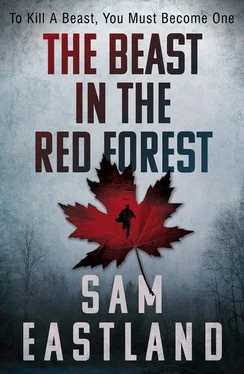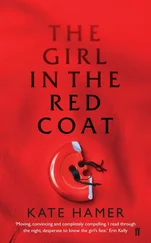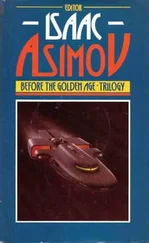Sam Eastland - The Beast in the Red Forest
Здесь есть возможность читать онлайн «Sam Eastland - The Beast in the Red Forest» весь текст электронной книги совершенно бесплатно (целиком полную версию без сокращений). В некоторых случаях можно слушать аудио, скачать через торрент в формате fb2 и присутствует краткое содержание. Год выпуска: 2013, ISBN: 2013, Издательство: Faber & Faber, Жанр: Исторический детектив, на английском языке. Описание произведения, (предисловие) а так же отзывы посетителей доступны на портале библиотеки ЛибКат.
- Название:The Beast in the Red Forest
- Автор:
- Издательство:Faber & Faber
- Жанр:
- Год:2013
- ISBN:9780571281466
- Рейтинг книги:4 / 5. Голосов: 1
-
Избранное:Добавить в избранное
- Отзывы:
-
Ваша оценка:
- 80
- 1
- 2
- 3
- 4
- 5
The Beast in the Red Forest: краткое содержание, описание и аннотация
Предлагаем к чтению аннотацию, описание, краткое содержание или предисловие (зависит от того, что написал сам автор книги «The Beast in the Red Forest»). Если вы не нашли необходимую информацию о книге — напишите в комментариях, мы постараемся отыскать её.
The Beast in the Red Forest — читать онлайн бесплатно полную книгу (весь текст) целиком
Ниже представлен текст книги, разбитый по страницам. Система сохранения места последней прочитанной страницы, позволяет с удобством читать онлайн бесплатно книгу «The Beast in the Red Forest», без необходимости каждый раз заново искать на чём Вы остановились. Поставьте закладку, и сможете в любой момент перейти на страницу, на которой закончили чтение.
Интервал:
Закладка:
With bayonets fixed upon their Mauser rifles, they moved at a slow trot to keep up with the machine. Their clothing was a threadbare collage of the battles they had seen. Some still wore the bottle-green collared tunics in which they had marched into Poland in the autumn of 1939. There were jackboots that had marched down the Champs-Elysées in the summer of 1940, and ankle boots looted from Dutch army warehouses, with laces made from scraps of radio wire and loose heel irons that jangled like spurs as they grazed over stones in the road. Slung from belts, some carried canvas bread bags bleached by the African sun out in the Sand Sea of Calanscio. Their sharply angled helmets hid beneath tattered strips of camouflage cut from old shelter capes, or covers fashioned out of rusty chicken wire, on which could still be seen the traces of white paint daubed upon them when their owners huddled freezing in the ruins of Borodino in the winter of ’41.The faces of these men appeared primordial, their smoke-clogged pores and blistered lips like scraps of leather thrown out by a tanning yard. Their bodies were those of young men, but shrunk to bony scaffolding beneath the patched and filthy grey of Wehrmacht uniforms. Although the shape of them was human, in the hollow darkness of their eyes, and with frost-bitten ears worn down like chips of sea glass, they were no longer recognisable as men. They bore no resemblance to the postered images which had propelled them on this journey, whose only outcome, they now realised, would be annihilation. They were all that remained of their generation; restless husks of who they’d been before they went away, unknowable now to those they left behind and in the ice-filmed puddles where they glimpsed their sad reflections, unfamiliar even to themselves.
Somewhere up the street, just beyond Pekkala’s field of view, the half-track came to a squeaking halt.
‘There are more of them out back,’ whispered Kirov. ‘They’re moving through the alleyways.’
At that moment, Pekkala spotted two soldiers walking directly towards the house. ‘Go!’ he whispered to Kirov.
The two men dashed across the room, slid down the ladder into the root cellar and closed the trap door on top of them, just as the front door blew open, splintered by a rifle butt.
The soldiers searched the house, floorboards groaning under the cautious tread of their hobnailed boots.
Huddled in the darkness, only a hand’s breadth below, Kirov and Pekkala knew that it was only a matter of time before the soldiers discovered the narrow trench which led directly to the root cellar. And when they did, there would be no way out.
*
The first thing Vasko saw when he came in sight of the cabin was sunlight glinting off the shards of broken window. The door to the cabin was wide open, with one of its hinges torn off. Vasko realised immediately that one of the explosive devices with which he had booby trapped the cabin must have detonated.
Probably that fool Malashenko, he thought, nosing around to see what he could steal. I warned him not to touch things that didn’t belong to him. But, to be certain, Vasko drew his gun and circled around through the trees, searching for any sign of movement as he approached the cabin door.
Picking a stone from the ground, he rolled it into the dark, knowing that anyone still alive inside would mistake it for a grenade. Then he waited, ready to shoot whoever came running out.
But there was no cry of surprise. No sound of footsteps or the chambering of weapons. Only the dull clatter of the rock as it skipped across the wooden floor.
Cautiously, Vasko stepped into the cabin, his gun held out and finger on the trigger.
The breath caught in his throat when he saw the carnage.
By the table, still sitting in the chair, which had tipped back against the wall, was a man without a head and missing one of his arms. The table itself had been broken almost in half, its surface cratered by a large scorch mark.
Vasko’s first guess was that Malashenko had triggered the booby trap in the canteen, but then he saw the canteen lying on the other side of the room. It was dented and the metal blackened by smoke but it had definitely not exploded.
Then, looking up, Vasko spotted pieces of what he realised was his radio embedded in the ceiling. Immediately, he guessed that Malashenko had instead set off the explosive device installed in the radio. Vasko had done the rewiring himself, using the on switch as both on and off depending on which way he turned it and using the separate off switch as a trigger for the dynamite. To lose a radio when in the field was serious, but to have one fall into the hands of the enemy was a capital offence. Vasko was glad that he had taken precautions against losing the device, but it left him without a guide who knew his way around Rovno, as well as any means of communicating with Skorzeny. At least, he thought, I now have a reason for delaying my return to Berlin.
Knowing that this place might be his home for several days to come, Vasko set about cleaning up the mess. Underneath the bunk, he found the man’s head, scorched and disfigured by the blast. He lifted it by the hair, so much heavier than he would have thought, and stared into its sightless eyes.
‘Mother of God,’ whispered Vasko, as he realised that it wasn’t Malashenko after all.
The head fell from his grasp and landed with a heavy thud upon the cabin floor.
‘It can’t be,’ he said to himself.
Praying that he might somehow be mistaken, Vasko stumbled over to the body in the chair. Fumbling with the shirt buttons, he reached under the blood-stiffened cloth and pulled out a flat oval disc made of dull grey zinc, still attached to the remains of a braided black and red cord which had once held the disc around the wearer’s neck. It was a standard German military dog tag, which all personnel were required to carry in the field, no matter what uniforms they wore while undertaking operations. One side of the tag was marked SS-SD. The other side bore a cryptic combination of letters and numbers: 2/4 Hauptamt. Bln. The dog tag had been perforated down the middle and the markings repeated on both sides. In the event that the soldier was killed, one half of the oval would be snapped off for graves registration, the second half remaining with the body. The information stamped into the metal ensured that agents could identify themselves to regular German troops when they crossed back over the lines. He studied the inscription. The word ‘Hauptamt’ stood for ‘headquarters’ and ‘Bln’ was the abbreviation for Berlin. This was the department of the SS to which all field agents were officially assigned. No regular soldier attached to SS Headquarters in Berlin would have found himself out here, behind the lines and wearing civilian clothes. Now Vasko knew that there could be no doubt. The dead man was Luther Benjamin.
Before he left on the mission, Vasko had been informed by Skorzeny that Benjamin had been assigned to rendezvous with him as soon as the mission was completed. But no such signal had been sent. Vasko couldn’t fathom why Benjamin would have set out anyway. That decision had cost the agent his life.
Vasko sat down on the bunk. He felt dizzy and sick, knowing what he had to do next. Abwehr protocol demanded that, in the event of an agent’s death in the field, all evidence of him, his identity and his mission must be destroyed.
Vasko stood, his head still spinning, and reached for a lantern behind the bunk. It had escaped the blast and was still filled with paraffin. Vasko grasped the lamp and raised it above his head, ready to smash it on the floor and then, with a single match, burn the cabin to the ground. But in that moment an idea came to him which focused all the chaos in his mind. Gently, so as not to spill a drop of fuel, he replaced the lantern on the ground.
Читать дальшеИнтервал:
Закладка:
Похожие книги на «The Beast in the Red Forest»
Представляем Вашему вниманию похожие книги на «The Beast in the Red Forest» списком для выбора. Мы отобрали схожую по названию и смыслу литературу в надежде предоставить читателям больше вариантов отыскать новые, интересные, ещё непрочитанные произведения.
Обсуждение, отзывы о книге «The Beast in the Red Forest» и просто собственные мнения читателей. Оставьте ваши комментарии, напишите, что Вы думаете о произведении, его смысле или главных героях. Укажите что конкретно понравилось, а что нет, и почему Вы так считаете.











